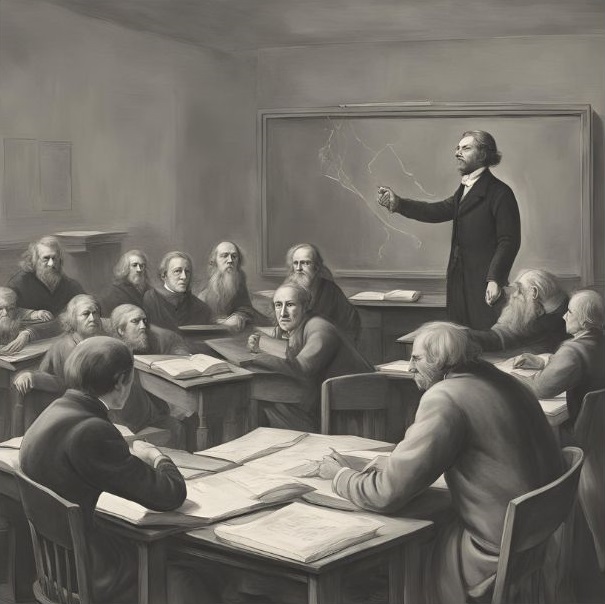- Opinion
- 24 de June de 2024
- No Comment
- 6 minutes read
Philosophy and competences. Are Philosophy teachers critical?

Philosophy and competences. Are Philosophy teachers critical?


Philosophy is going through difficult times in the academic world. Two key factors are to be blamed for this, both promoted by the main current of scientificist pedagogy, namely: on the one hand, the infantilizing of the individual, which has turned everything academic into a producer of naive and weak subjectivities, and therefore easier to indoctrinate and, on the other hand, the competencialist dogma, which advocates the expendability of all knowledge that may not be easily and directly applicable. In this article we are going to dedicate a few words to this dogma, we want especially to highlight the importance of teachers, mainly those who are supposed to have a humanistic training and keep pushing as much as possible to avoid falling into its pernicious illusions.
The fact is that, even nowadays, I still find colleagues who to face up the reduction of Philosophy hours in our current Curricula (I am going to focus it on the subject of Philosophy), they react by assuming and joining the pedagogical competencialist patterns, instead of demanding the returr of the word that has been stolen from us. Thus they argue “our subject has always been competencialist”, which is a way of saying that Philosophy is a subject that fits so well in that it should be privileged by the current pedagogical laws, whose content is, nevertheless, ignominiously anti-intellectualist. This, on the one hand, it’s and obvious naivety (no one is going to provide more Philosophy hours just because we put ourselves at the service of politicians and pedagogues); and, on the other hand, because it’s just like a surrender since you’re giving up the claim for knowledge transmission as a proper and genuine School task, and perhaps a betrayal to knowledge too (especially to philosophical knowledge) and to the social class whose interests and learnings are directly depending on its acquisition in school: the working class.
My competetentialist colleagues argue – sure they do it honestly – the verifiable fact that in High School philosophical fragments are analyzed in a similar way to what the economic elites (not philosophers, not even pedagogues) have defined as “competence”: set of knowledge, skills and abilities that allow an activity or task to be carried out adequately and systematically. However, by accepting this definition as valid, they forget that, in practice, the subject of the competencialist turn that education has undergone since the last decades has always argued against rote study, which is blamed to be opposed to understanding, hence being compared to the physiological act of vomiting. This can only lead to what it has in fact produced: the absolute contempt, and the consequent neglect, of the contents of the different subjects.
You only have to take a look at the different curricular developments of the current High School subjects to realize how little any contents that have to do with knowledge are currently left in them. Nevertheless, it is not yet essential to have previously memorized a certain number of concepts, even though it may appear as useless data, to be able to properly understand those types of texts, juts apparently “competential”, that some of my fellow professors boast about?
In my opinion, to expect Philosophy would regain its relevance by taking advantage of the “troubled river” of current educational reforms is to fall into the stale constructivist prejudices that may only serve to keep students away from knowledge. And, since being Philosophy teachers, this is the worst thing we should ever do. That is why I ask my colleagues for honesty, capacity for reflection and political commitment to our students; In short, we must be the true representatives of that “critical spirit” the Law is suposed to expect from us…. But this implies that we flatly refuse to accept the dogmas of a pseudoscientific and anti-philosophical discipline such as contemporary pedagogy. Otherwise, we’ll be doing nothing more than «politics» in the worst sense, that is actually demagoguery. Personally, I refuse to consider as a proper representative of Philosophy anyone who blindly accepts to be devoted to such as tasks, wich are nothing but passive legitimation of the ideological framework that is being promoted bey certain institutions– let us never forget it – to reach a hidden goal: to annul ourselves as autonomous individuals, as subjects of knowledge.
Source: educational EVIDENCE
Rights: Creative Commons

